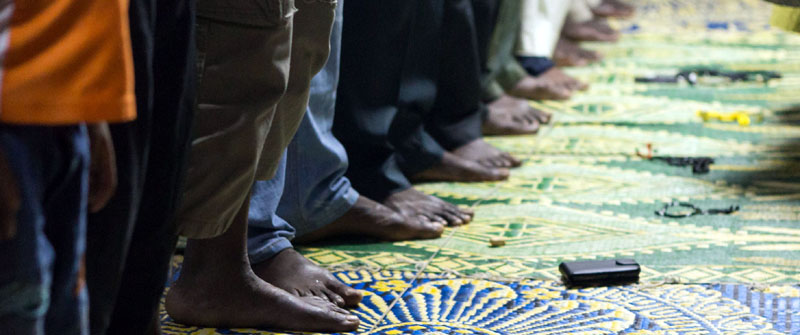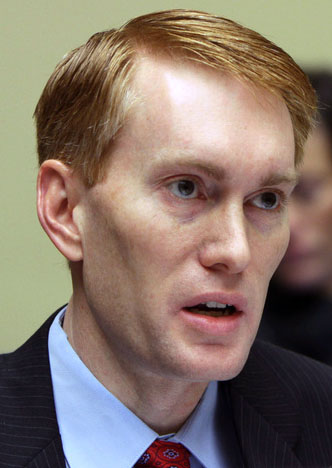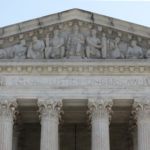 [1]
[1]WASHINGTON (BP) — Improvements made in the last year by two severe violators demonstrate progress is being made on the international religious freedom front, a bipartisan commission said April 28 in its annual report.
 The U.S. Commission on International Religious Freedom (USCIRF) announced it was no longer recommending Sudan and Uzbekistan for a list of the world’s most egregious violators of the right to believe and practice faith.
The U.S. Commission on International Religious Freedom (USCIRF) announced it was no longer recommending Sudan and Uzbekistan for a list of the world’s most egregious violators of the right to believe and practice faith.
The commission, however, recommended the world’s second most populous country, India, be added to the U.S. State Department’s list of “countries of particular concern” (CPCs). It marks the first time since 2004 USCIRF has called for CPC status for India. CPC designation is reserved for countries guilty of “systematic, ongoing [and] egregious violations” of religious liberty.
In its report, USCIRF commended the Trump administration’s work on global religious liberty but urged it to stop the practice of using pre-existing sanctions for countries on the CPC list. The commission called for the administration to take targeted action on each CPC “to demonstrate meaningful consequences and encourage positive change.”
The new USCIRF report provides an international overview as well as individual reports and recommendations on 29 countries regarding the state of religious liberty in the last year. The document includes recommendations to the State Department for countries and entities USCIRF deems worthy of designation as severe violators of religious freedom.
Travis Wussow, vice president for public policy of the Southern Baptist Ethics & Religious Liberty Commission (ERLC), said the annual report “provides a rigorous, independent source of evidence that the ERLC relies on in its advocacy around the world. Religious freedom for all, both at home and abroad, is a long-held, top priority of Southern Baptists and the ERLC’s work in Washington, D.C., and within international organizations.
“It is incumbent on those of us with freedom to relentlessly advocate for the vulnerable and the voiceless who live under the rule of those tyrants and oppressors who do not respect their fundamental freedoms.”
USCIRF’s decision not to recommend Sudan for the State Department’s CPC list marked the first time it has declined to do so since it began making such recommendations in 1999.
A citizen-led protest campaign brought an end to the militant Islamic regime of Omar al-Bashir last April in Sudan. A transitional constitution no longer considers Islam the primary authority for law and guarantees freedom of belief and worship, according to USCIRF’s report.
USCIRF had recommended Uzbekistan for CPC designation every year since 2005. The Central Asian country, however, stopped its routine of raiding religious groups for unauthorized meetings and distribution of literature, USCIRF reported.
Both Sudan and Uzbekistan worked closely with USCIRF to produce change, according to the report. In acknowledging both countries must take further steps, the commission recommended Sudan and Uzbekistan for the State Department’s Special Watch List (SWL), which is for violators that do not reach the severity of CPCs.
The commission is “encouraged by the positive steps some governments took in 2019 … to establish a safer environment for freedom of religion or belief,” USCIRF Chair Tony Perkins said in a news release.
USCIRF sees “international religious freedom on an upward trajectory,” said Perkins, president of the Family Research Council.
In recommending CPC designation for India, USCIRF said the Asian giant made “a sharp downward turn” in 2019. India — which has a population of nearly 1.4 billion — implemented anti-religious freedom policies that especially affected Muslims, the commission reported. Religious minorities also suffered harassment and violence that was permitted by the national government and some state governments, according to the report.
Two USCIRF members, Gray Bauer and Tenzin Dorjee, dissented from their fellow commissioners’ recommendation on India, saying it does not belong in the same category with such countries as China and North Korea.
Chelsea Sobolik, an ERLC policy director, told BP the CPC recommendation for India “is significant and right.”
“It’s been nearly two decades since India’s abuses required its inclusion on the CPC list, and the violations have continued to increase,” she said in written remarks. “They, like the other countries included, must be held to account for such systematic disregard for the basic dignity of their people.”
In addition to Sudan and Uzbekistan, USCIRF recommended Afghanistan, Algeria, Azerbaijan, Bahrain, Central African Republic, Cuba, Egypt, Indonesia, Iraq, Kazakhstan, Malaysia, Nicaragua and Turkey for Special Watch List designation. The State Department included Sudan and Uzbekistan on its Special Watch List in December.
The State Department did not include Nigeria, Russia, Syria and Vietnam on its list of CPCs announced in December 2019, though they were recommended by USCIRF.
In addition to Sudan and Uzbekistan, USCIRF recommended Afghanistan, Algeria, Azerbaijan, Bahrain, Central African Republic, Cuba, Egypt, Indonesia, Iraq, Kazakhstan, Malaysia, Nicaragua and Turkey for Special Watch List designation, which is for violators that do not reach the severity of CPCs. The State Department included Sudan and Uzbekistan on its Special Watch List in December.
The commission also recommended six terrorist organizations as “entities of particular concern” (EPCs): Al-Shabaab in Somalia; Boko Haram in Nigeria; Hay’at Tahrir al-Sham (HTS) in Syria; the Houthis in Yemen; ISIS-Khorasan in Afghanistan and the Taliban in Afghanistan. All but HTS were on the State Department’s EPC list in December.
USCIRF commended developments in 2019 and early 2020 that it said demonstrate the Trump administration is still prioritizing global religious liberty, including: The State Department’s second Ministerial to Advance Religious Freedom in Washington, the establishment of the International Religious Freedom Alliance and the appointment of the first senior director for international religious freedom on the National Security Council.
USCIRF — which is made up of nine commissioners selected by the president and congressional leaders — tracks the status of religious liberty worldwide and issues reports to Congress, the president and the State Department. Congress and President Clinton established USCIRF in 1998 with enactment of the International Religious Freedom Act.
The commission’s 2020 report is available at https://www.uscirf.gov/sites/default/files/USCIRF%202020%20Annual%20Report_Final_42920.pdf [3].








